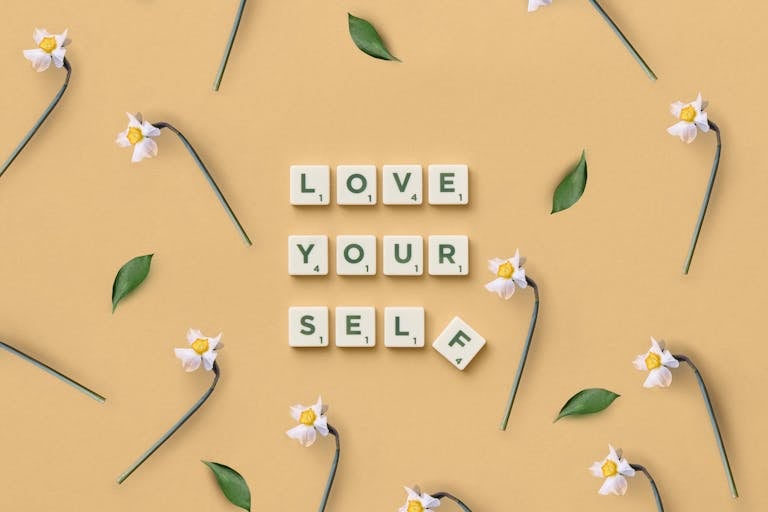How Practicing Gratitude Transformed My Life: A Personal Journey
Have you ever paused to appreciate the little things in life? I used to rush through my days, always chasing the next goal, never stopping to be thankful for what I had. But when I started practicing gratitude, my perspective shifted completely. Gratitude changed my life, and today, I want to share my journey with you.
Gratitude is a simple but powerful tool. It has helped me shift my focus from what I lack to what I have, leading to a more fulfilled and joyful life. In this article, I will take you through my journey with gratitude and how it has profoundly impacted various aspects of my life.
Understanding Gratitude
Gratitude is more than just saying “thank you.” It is a deep appreciation for the good in our lives, whether big or small. It shifts our focus from what we lack to what we have, cultivating a positive mindset and fostering happiness. When we embrace gratitude, we start to see the world differently—through a lens of abundance instead of scarcity.
Scientific research has shown that practicing gratitude regularly can rewire our brain to be more positive. By acknowledging the good things in life, we strengthen neural pathways that make us more resilient and optimistic. This simple habit can significantly enhance our well-being and overall satisfaction with life.

The Moment I Discovered Gratitude
It wasn’t a grand revelation but a simple moment. I was feeling down, overwhelmed by life’s struggles, when a friend suggested I list three things I was grateful for. It seemed silly at first, but as I wrote, I felt lighter. That was the beginning of my gratitude journey. It made me realize that even on my worst days, there was always something to be thankful for.
That small exercise of writing down gratitude transformed my mindset. Instead of dwelling on what went wrong, I started focusing on the little things that brought joy. This shift changed my outlook on life and helped me find happiness in everyday moments, no matter how ordinary they seemed.
How Gratitude Improved My Mental Health
Practicing gratitude daily helped me battle anxiety and stress. Instead of dwelling on negative thoughts, I started focusing on the positives. It gave me a new perspective, reducing my worries and bringing inner peace. By acknowledging the good in my life, I became more emotionally balanced and better equipped to handle challenges.
Furthermore, gratitude has been linked to increased levels of serotonin and dopamine, the chemicals responsible for happiness. Over time, I noticed that my mood improved, and I felt more optimistic about life. Gratitude became a natural way for me to combat negativity and cultivate a sense of peace within myself.
The Impact of Gratitude on My Relationships
Gratitude helped me appreciate the people in my life more. I started expressing my appreciation, strengthening my relationships. A simple “thank you” or acknowledging someone’s effort made a huge difference in my connections with family and friends. It deepened my relationships and created a sense of mutual respect and love.
When we practice gratitude, we tend to be kinder and more compassionate toward others. By focusing on the good in people rather than their flaws, I found myself being more patient and understanding. This led to stronger, more meaningful connections and a more positive social environment.
Gratitude also made me a better listener. Instead of being caught up in my own thoughts and worries, I became more present in my interactions. I found myself genuinely appreciating the time and effort people put into our connections, which deepened my relationships in ways I never expected.
There’s scientific backing to this as well. Studies have shown that expressing gratitude increases oxytocin, the hormone responsible for bonding and connection. Simply put, gratitude fosters warmth, trust, and emotional closeness.
Practical Exercise: Express Gratitude to Loved Ones
- Each day, find one person to thank genuinely for something they’ve done.
- Write a heartfelt note, send a text, or express it verbally.
- Notice how it strengthens your connection and makes you both feel happier.
Key Takeaway:
- Expressing gratitude strengthens relationships and fosters deeper connections with those around us.
- Gratitude increases oxytocin, which enhances trust and emotional closeness.
- Actively acknowledging the contributions of others makes both you and them happier.
Gratitude and Physical Well-being
Did you know gratitude can improve your physical health? Since practicing gratitude, I’ve noticed better sleep, lower stress levels, and increased energy. Research even shows that grateful people tend to take better care of their health. When we feel happier and less stressed, our bodies respond positively, leading to overall better well-being.
Moreover, gratitude can boost the immune system and reduce inflammation in the body. By reducing stress hormones, it creates a healthier internal environment, making us more resilient to illnesses. Simply put, a grateful heart leads to a healthier body.


The Power of a Gratitude Journal
Keeping a gratitude journal has been life-changing. Every night, I jot down three things I’m thankful for. This habit has rewired my brain to seek positivity and appreciate life’s blessings. Over time, this small habit has become a source of comfort and joy, reminding me of all the good things in my life.
A gratitude journal also serves as a great reflection tool. On difficult days, I look back at my entries and remind myself of the blessings I have received. This practice helps me stay grounded and keeps me motivated to continue my journey with gratitude.
A Shift in Perspective: From Complaints to Appreciation
Like many people, I used to focus on what was lacking. If something went wrong, I dwelled on it. If I faced a challenge, I let it define my day. But when I started keeping a gratitude journal—writing down three things I was grateful for each morning—something shifted.
Instead of fixating on problems, I began noticing the small joys: a kind message from a friend, the warmth of the sun on my skin, or a delicious meal. Over time, I realized that my life was filled with good things; I had simply overlooked them.
This practice didn’t just help me feel better in the moment—it rewired my brain. Research in neuroscience suggests that focusing on gratitude strengthens neural pathways associated with positive thinking. In essence, the more I practiced gratitude, the easier it became to see the good in my life.
Practical Exercise: Start a Gratitude Journal
- Set aside five minutes each morning or night to write down at least three things you are grateful for.
- Be specific: Instead of writing “I’m grateful for my family,” try “I’m grateful for the way my sister called me today to check in on me.”
- Reflect on how these things make you feel and how they add value to your life.
Key Takeaway:
- Gratitude helps shift focus from negativity to the abundance of positive experiences around us.
- Keeping a gratitude journal can rewire the brain for positive thinking.
- Regular practice makes gratitude a natural mindset rather than an occasional effort.
Gratitude and Mental Health: A Natural Antidote to Anxiety
Before I cultivated gratitude, anxiety had a strong grip on my life. I constantly worried about the future and overanalyzed past mistakes. But gratitude forced me to live in the present.
Scientific studies show that practicing gratitude reduces cortisol (the stress hormone) and increases dopamine and serotonin, chemicals responsible for happiness. Instead of worrying about what I lacked, I focused on what I had—and that brought an immense sense of peace.
Gratitude also helped me break free from the cycle of overthinking. Instead of replaying negative scenarios in my head, I focused on the good in each day. Over time, this shift rewired my brain, making me more resilient and less reactive to stress.
Furthermore, gratitude acts as a powerful tool in combating depression. A study conducted by the Greater Good Science Center found that individuals who practiced daily gratitude exercises experienced significantly lower symptoms of depression compared to those who did not.
Practical Exercise: Reframe Negative Thoughts
- When you catch yourself complaining or worrying, challenge yourself to find something positive in the situation.
- Ask, “What lesson can I learn from this?” or “What is one small thing that’s still going right?”
- Practice this daily to retrain your brain to focus on positivity.
Key Takeaway:
- Gratitude reduces stress and anxiety by anchoring us in the present moment.
- Practicing gratitude releases dopamine and serotonin, improving overall happiness.
- It can be an effective tool in reducing symptoms of depression.
Physical Benefits: How Gratitude Improved My Health
At first, I didn’t realize how much my mindset affected my physical health. But after consistently practicing gratitude, I noticed several changes:
- Better Sleep: Gratitude journaling before bed helped quiet my mind and led to more restful nights.
- Less Stress: My body felt lighter and more relaxed, with fewer stress-related symptoms like headaches and fatigue.
- Healthier Choices: Feeling grateful for my body made me want to take better care of it through exercise and nutritious food.
Studies have shown that people who practice gratitude regularly have lower blood pressure, stronger immune systems, and even experience fewer aches and pains. It turns out that gratitude has real, measurable effects on our physical well-being.
Practical Exercise: Gratitude Meditation
- Close your eyes and take a few deep breaths.
- Focus on something you’re grateful for, whether it’s your body, your home, or a simple moment of joy.
- Let yourself fully experience the warmth and appreciation for that moment.
Key Takeaway:
- Gratitude positively impacts physical health by reducing stress, improving sleep, and encouraging healthier choices.
- A positive mindset can lead to tangible improvements in bodily functions and overall well-being.
Conclusion: The Life-Changing Power of Gratitude
Gratitude has truly transformed my life in ways I never expected. It has helped me shift my perspective, deepen my relationships, reduce anxiety, improve my health, and find joy even in difficult times.
If you feel stuck, overwhelmed, or unfulfilled, I encourage you to start practicing gratitude today. It’s a small change, but its impact can be life-changing. By making gratitude a daily habit, you can reshape your reality and live a more fulfilling and content life.
What are you grateful for today?







